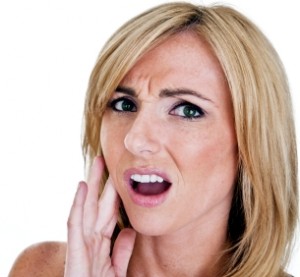What is Bruxism? Do I have that?
 When you wake up in the morning do you commonly have a headache? Have you experienced soreness or tenderness in your jaw muscles? Do you ever find your with an earache? Neck pain? Ringing in your ears?
When you wake up in the morning do you commonly have a headache? Have you experienced soreness or tenderness in your jaw muscles? Do you ever find your with an earache? Neck pain? Ringing in your ears?
An answer of YES to any or all of these issues could mean that you have bruxism. This is a common condition that means you are grinding or clenching your teeth. Now, this is not something that you may KNOW you are doing. It is something that is diagnosed by evaluating symptoms in conjunction with an examination from your dental team. Philadelphia dentists Dr. Cirka, Dr. Jeon and Dr. Smith have been treating many patients over the years who likely have the same symptoms as you.
How do I know if this is Me?
It is hard to know if you have bruxism. The majority of patients have know idea that they are grinding and/or clenching in their sleep. Below are some symptoms commonly associated with the condition:
- Sore and painful jaws and face muscles
- Frequent headaches that can extend down to the cervical spine and can be at the temple or the back of your head
- Tooth sensitivity
- Tightness in muscles in the jaw and in the neck
I think this Might be Me but I’m Not Sure
A dentist will help you with the diagnosis and treatment. Your dentist can simply look at your teeth and know for certain if you have bruxism. Much evidence will be on your teeth and gums that you may not be able to see in your mirror at home. The dental team will use tools to show you the evidence and teach you what it is. The signs include worn down enamel, chipping of the teeth, flattened teeth, and in some cases fractures and loose teeth.
Why am I Grinding and Clenching my Teeth?
The cause of bruxism is not entirely known. Researchers believe that it could be because there is misalignment of the top and bottom teeth, however doctors often determine that the reasons are mainly psychological. Common thoughts about what triggers bruxism include but are not limited to stress, anxiety, frustration, and aggression.
If it is related to mis-alignment of the teeth, straightening of the teeth, such as using Invisalign may help.
What Can I Do?
The most important thing to do after being diagnosed with bruxism is to make sure you protect your teeth and gums from further wear by using an appliance called NTI device or a night guard while you sleep. Make sure that you get a custom made appliance from a dental office because anything over-the-counter may make the issue worse. This appliance is more commonly known as a nightguard.
Here are some more tips to help alleviate the symptoms:
– Avoid chewing gum and hard or chewy foods like bagels. This canincrease jaw pain
– It is thought that alcohol use makes grinding worse. Limit use to help
– Stay away from drinks and food with caffeine as it is thought to increase grinding
-Alternating with ice and warm washcloths against your cheek can help the muscles relax
Schedule an appointment with your dental team as soon as possible so they can help you. We offer a free initial consultation to determine what is actually needed.


